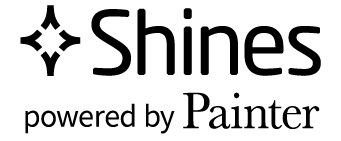
Launched in 2023, G1 Silicon Valley engages with a select group of leaders in the US and Japan. It aims to create a community by deepening each other's understandings and developing synergies for future endeavors.

Launched in 2023, G1 Silicon Valley engages with a select group of leaders in the US and Japan. It aims to create a community by deepening each other's understandings and developing synergies for future endeavors.
| Date | Wednesday, April 15, 2026: Cocktail Hour and Welcome Reception Thursday, April 16, 2026: Panel Sessions, followed by Farewell Dinner |
|---|---|
| Participation Eligibility | By invitation only |
| Language | English |
| M | Moderator |
|---|
Cocktail Time
Ocean LawnOcean Lawn
Cocktail Time
Welcome Reception Dinner
Ocean LawnOcean Lawn
Welcome Reception Dinner
| M | Moderator |
|---|
Breakfast
MiramarMiramar
Breakfast
Opening Session
Salon ⅢYoshito Hori
Salon Ⅲ
Opening Session
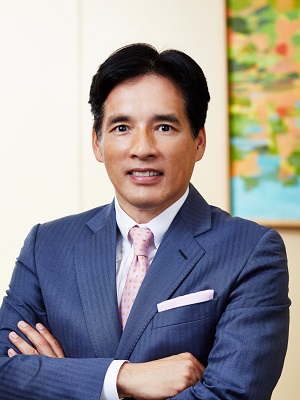
Yoshito Hori is the founder and president of GLOBIS University, the No.1 business school in Japan. He is also a founding partner of GLOBIS Capital Partners, the No.1 venture capital firm in Japan, and president of the G1 Institute, a platform to create a better Japan. His other roles include founder of the KIBOW Foundation, a project to support the revitalization after the Great Tohoku Earthquake; owner of the Ibaraki Robots, a professional basketball team in his hometown of Mito; owner of the Ibaraki Broadcasting System, Ibaraki’s only prefecture-wide media company; and producer of LuckyFes, an annual music festival held in Mito. He has been appointed as a member of the Board of Directors for Daniel J. Edelman Holdings, Inc. in June 2024.He received his BS in engineering from Kyoto University and holds an MBA from Harvard Business School.
#1 Plenary Session
Salon ⅢMargot Edelman
Alex Liu
Gillian Tett
Moderator: Jesper Koll
Salon Ⅲ
#1 Plenary Session
Innovating a New Trust in the Trump and AI Era
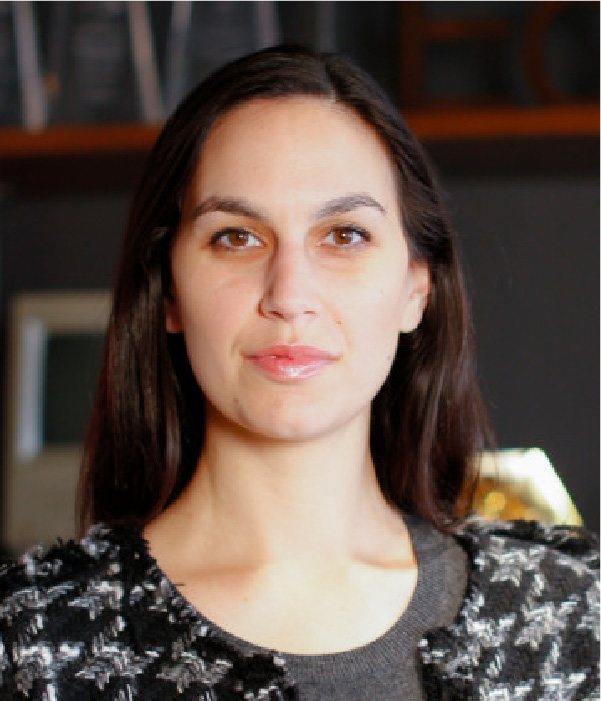
Margot Edelman is the GM for Edelman's NY Office and Co-Lead of the US Tech Sector. Previously, she led the Bay Area Hub, which spans 170 professionals in Sacramento and San Francisco, and before that, Edelman’s Technology Practice in the Bay Area.
Margot brings a wealth of experience in brand building, corporate reputation and executive visibility to her clients large and small. Margot also leads a monthly “get to know the media” speaker series, with top reporters from The FT, The New York Times, Forbes and other top publications.
Margot has worked for seven years on the press team at the World Economic Forum during its Annual Meeting in Davos, Switzerland, where she led broadcast media from Reuters, Bloomberg, Associated Press and others around the Forum and arranged broadcast interviews with participants.
Margot is a graduate of Harvard Business School and Harvard University.
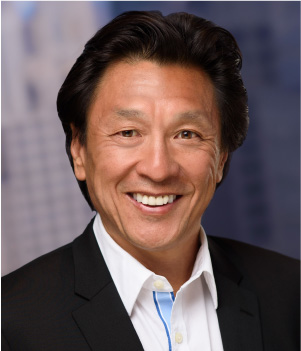
Alex Liu is the managing partner and chairman of the board emeritus at Kearney. Alex has been recognized by Consulting Magazine as a global Top 25 Consultant and by the Global Diversity List as a top 10 Senior Executive. He is quoted regularly in leading business media, including Harvard Business Review, Financial Times, and CNBC. He speaks frequently on culture, hosts the popular podcast Joy@Work, and has recently authored Joy Works. He was CEO of a technology start-up and a partner with Boston Consulting Group. Alex has an MBA from Harvard and a BA from Yale.
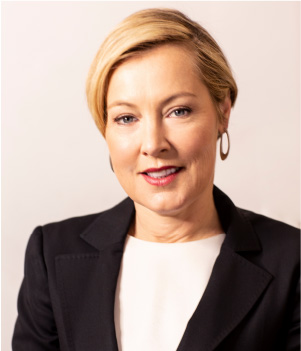
Gillian Tett is a columnist and member of the Editorial Board for the Financial Times. She writes a weekly column on Friday, covering a range of economic, financial, political and social issues. She also serves as Provost of King's College, Cambridge.Previously, she chaired the FT Editorial Board, ran Moral Money, the FT's sustainability newsletter which she co-founded, and wrote two columns a week. She has been named Columnist of the Year (2014), Journalist of the Year (2009) and Business Journalist of the Year (2008) in the British Press Awards, and received three awards from America's Society of Business and Economic Writers Awards. She is a best-selling and award-winning author of four books, and received the Royal Anthropological Institute Marsh Award and the American Anthropological Association President Medal for her work in social science. She has received honorary degrees from Carnegie Mellon, Miami and Baruch, Exeter, Lancaster, and Goldsmith's universities.

Jesper Koll has been researching and investing in Japan since becoming a resident in 1986. Over the past two decades, Jesper has been consistently recognized as one of the top Japan strategists/economists, having worked as Chief Strategist and Head of Research for U.S. investment banks J.P. Morgan and Merrill Lynch. He currently serves as Expert Director for the Monex Group and the Japan Catalyst Fund (Japan’s 1st retail investor based corporate engagement/activist fund). His analysis and insights have earned him a position on several Japanese government and corporate advisory committees, including Tokyo Governor Yuriko Koike’s Advisory Board. In 2022, he was appointed Global Ambassador for Tokyo’s Financial Center initiative. Jesper serves as Board Director of OIST, the Okinawa Institute for Science and Technology and is a Founder and Board Director of the Asia Society Japan and heads their Policy Committee. He is one of the few non-Japanese members of the Keizai Doyukai, the Japan Association of Corporate Executives; and serves on the board of several Japan-based start-ups. He has written three books in Japanese and, in 2021, created the acclaimed video/pod-cast series “Japan - Capitalism that works”. Jesper is an economist, angel-investor, patron; and yes, a Japan Optimist.
Salon Ⅲ
<Politics & Economy>
Salon Ⅲ
#2 Breakout Sessions
Strategic Technology M&A to Drive Innovation and Growth
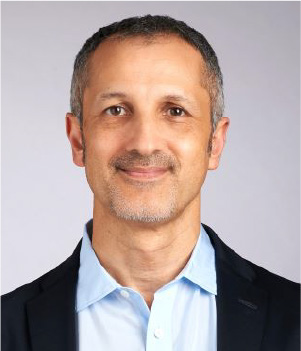
Stephen is an award winning senior executive with a track record in leading large scale digital transformation and running businesses across banking and insurance. He has lived in Japan, India, China, and Singapore running global and regional Technology and Operations teams.
He has held various senior leadership roles in technology for world leading financial institutions and is an experienced independent board director for NGOs, corporates and industry bodies.
Also, he has a passion for innovation and has run and sat on panels covering topics such as Digital Health, and AI in financial services, he is an early stage investor and VC advisor.
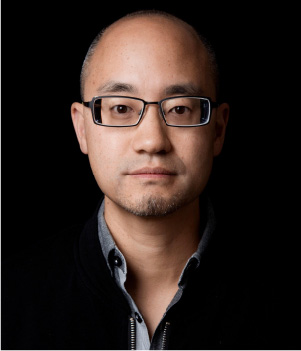
Larry Chu is a strategic advisor, investor and founder. Recognized as one of the country’s top 50 M&A attorneys, he currently serves as Co-Chair of Goodwin Procter’s Global M&A Group, a practice that has topped the global league tables by volume for five consecutive years. He represents public and private companies in complex and high-profile M&A transactions, joint ventures and corporate finance transactions. He is an expert in technology and consumer transactions, with a particular strength in AI and ML having been involved in significant transactions for DeepMind, Geometric Intelligence, Semantic Machines, InflectionAI, Adept AI and Covariant. He is an active investor in emerging companies and funds, board member to various companies, and serves as Senior Advisor to the CEO and Board of HumanX.
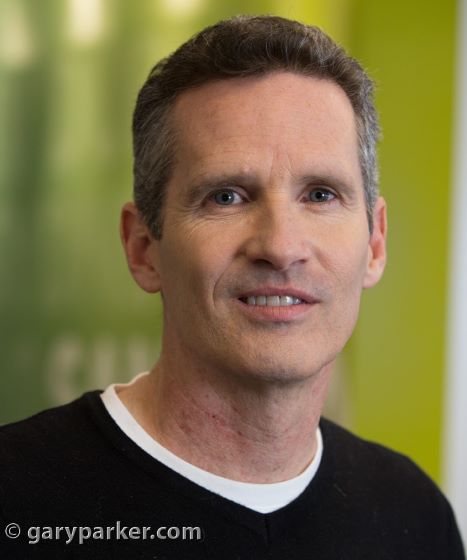
Daniel Springer serves as Board Director of UiPath and DocuSign, where he was CEO until June 2022. Springer has more than 25 years of executive leadership and experience in driving innovation and hyper growth across technology and, specifically, Software-as-a-Service (SaaS) businesses.
Prior to DocuSign, Springer served as Chairman and CEO at Responsys for ten years where he transformed and scaled the business from private start up to the leading cross-channel marketing automation
platform globally as a publicly traded company.
Springer holds an MBA from Harvard University and an AB in Mathematics and Economics from Occidental College.
Springer has served as a board member at both public and private
companies, including iCIMS, Ansira, YuMe, ELOAN (Banco Popular),
Heighten, Persado, and eGroups (Yahoo!), as well as at nonprofits,
including The Boys and Girls Club, YearUp, The Urban School, Shop.org, AdTech, The Randall Museum and The San Francisco Friends School.

Catherine Porter is a technology executive with more than 20 years' experience in global consumer and enterprise software companies (e.g., Oracle, Google, LinkedIn, Meta). She specializes in strategic business development and commercial objectives for globally scaling companies. She currently supports Globis Capital Partners and Mysten Labs as an advisor, and is the chief business officer for Prove.
Salon Ⅱ
<Technology & Business>
Salon Ⅱ
#2 Breakout Sessions
CEO Panel: How to Win by Leveraging Tech & AI
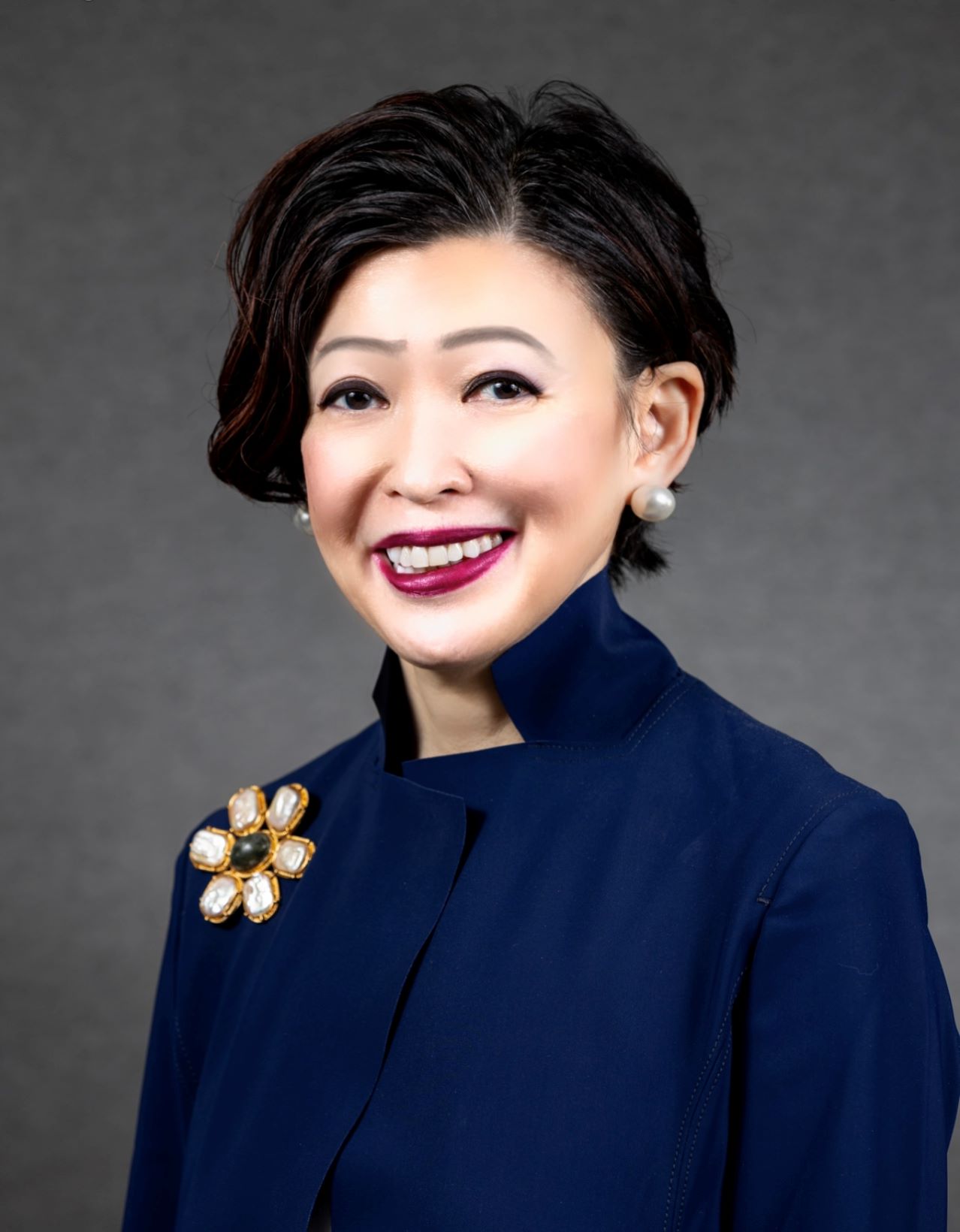
Sonita Lontoh is an independent board director with expertise in AI, technology innovation and digital transformation. She currently serves on the boards of Sunrun (Nasdaq: RUN), the largest consumer solar and battery as a service company in the US, TrueBlue (NYSE: TBI), a global workforce solutions company who in the past three years has connected more than 2 million people to work, and as an advisor to Sway Ventures, a Silicon Valley VC firm investing in the sustainable transformation of foundational industries. Prior, over her three decades of diverse global career as a senior executive at both new innovative businesses within large global Fortune 100 companies such as HP, Siemens, PG&E; and at entrepreneurial, VC-backed Silicon Valley technology companies, she had led programs that have delivered positive impact to businesses, consumers, and society. She is a purpose-driven leader passionate in advancing technology for humanity. She has been recognized by the White House, the US State Department, Directors & Boards, San Francisco Business Times, and inducted into the Asian Hall of Fame and Women in Manufacturing Hall of Fame. Sonita serves on the National Association of Corporate Directors (NACD) Blue Ribbon Commission on board culture and on the World Economic Forum/NACD climate advisory council. She is NACD-directorship and climate certified, NACD CERT Cyber Risk- and DDN-cybersecurity certified, and has completed the Stanford Directors College and the Harvard Business School’s Audit and Compensation committee certificates. Sonita is a graduate of the Massachusetts Institute of Technology (MIT), Northwestern's Kellogg School of Management, and University of California Berkeley.
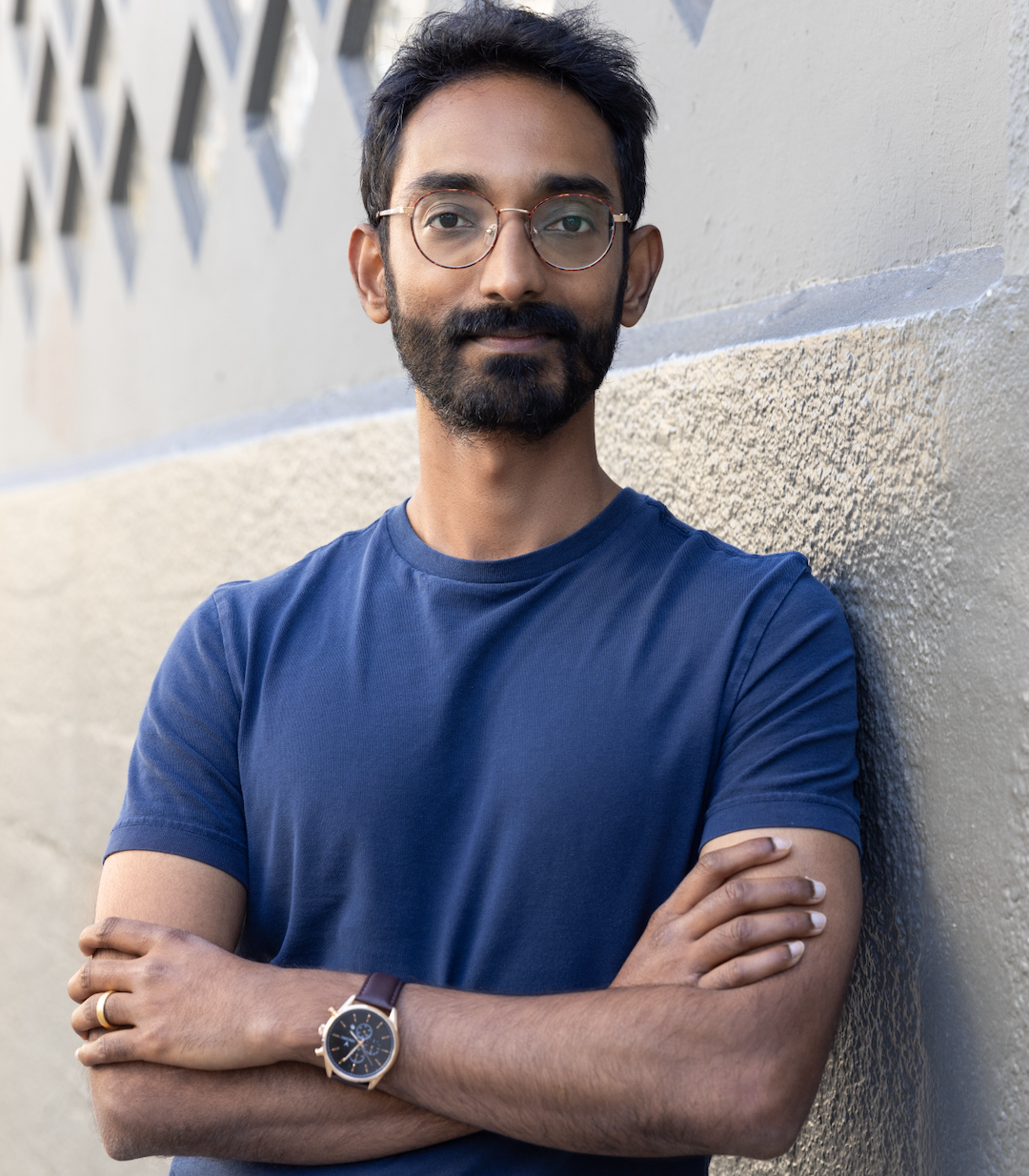
Arjun Prakash is co-founder and CEO of Distyl AI, a leading AI Solutions partner to the F500. In partnership with OpenAI, Distyl has operationalized AI to create a competitive edge for the world’s most important institutions. Distyl is backed by top Silicon Valley investors, including Lightspeed, Khosla, Coatue, and industry leaders like Reid Hoffman and board members from a dozen F500 companies.Before founding Distyl, Arjun played a pivotal role at Palantir, where he was instrumental in building the Palantir’s Commercial business from the ground up. During his tenure, he led some of Palantir's earliest and most impactful commercial engagements, helped create Palantir Foundry and drove the execution of large-scale joint ventures. His work has created transformative outcomes for F500s across US and Europe.Arjun’s previous experience includes leadership and research roles at Snorkel AI, BlackRock, and Siemens Corporate Research. He holds a degree in Electrical & Computer Engineering from Cornell University.
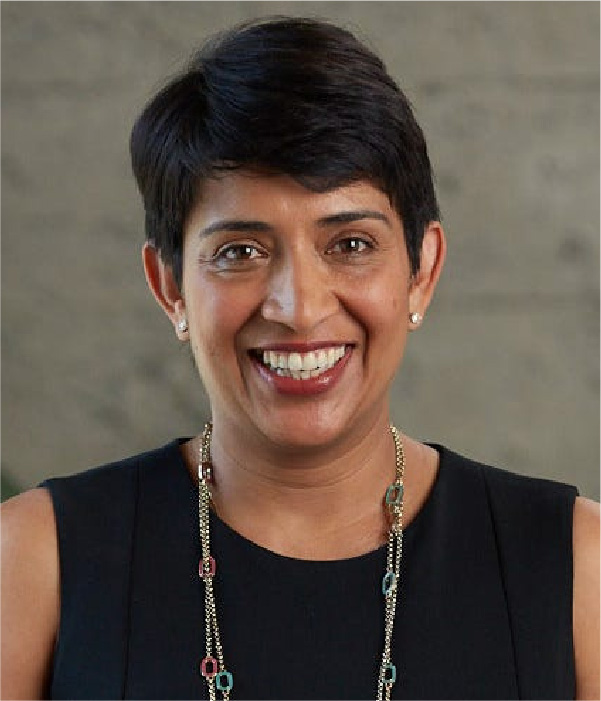
Roli is a seasoned executive and CEO of NextRoll, a marketing technology company, where she is leading its privacy-forward and AI driven transformation. She has held leadership roles at LinkedIn, Brex, and Clever, with expertise in go-to-market, general management, and operational strategy at both public companies and late-stage startups. At LinkedIn, she led global teams, scaled revenue from $300M to $3B+, and co-founded the LinkedIn Women’s Network, which helped grow women in leadership from 8% to 30%. She later drove 3x growth at EdTech company Clever and helped Brex scale from $10M to $100M ARR. Roli serves on the board of Culture Amp and advises startups on GTM, operations, culture, and D&I. She is also an angel investor and a limited partner in Operator Collective. Her leadership has been recognized by Business Insider, the San Francisco Times, and PBWC, and her work has been featured in Stanford case studies and the NYT bestseller Upstream by Dan Heath. Roli holds an MS in Management from Stanford and engineering degrees from Rutgers and Anna University.
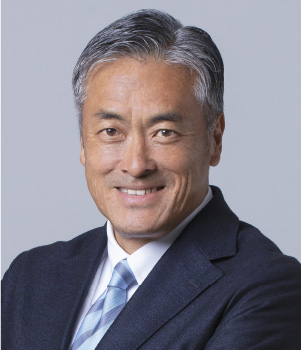
Gen Tamatsuka began his career at AGC Inc. He then joined Fast Retailing Co., Ltd., which operates UNIQLO stores globally, in 1998, and thereafter he took on the position as the President and COO in 2002. He then established Revamp Corporation in 2005 to revitalize and revamp companies, mainly in consumer industry. In 2010, he joined Lawson, Inc., the second largest convenience stores in Japan. He was appointed President and CEO of the company in May 2014. He then joined DIGITAL HEARTS HOLDINGS Co., Ltd. a leading company that specializes on software testing and cyber security services for digital products as CEO. Then, he joined Lotte Holding Co. Ltd. as a President and CEO. He also serves as a vice chairman for Japan Association of Corporate Executives (KEIZAI DOUYUKAI) and as a chairman for JAPAN RUGBY LEAGUE ONE.

Dr. Richard Dasher has been Director of the US-Asia Technology Management Center and Adjunct Faculty at Stanford University since 1994. His research focuses on the impact of new technologies on industry value chains, open innovation management, and regional innovation ecosystems in different countries. He concurrently served as Executive Director of Stanford’s Center for Integrated Systems (1998 - 2015) and as an outside Board Director and member of the Management Council of Tohoku University (2004 - 2010). Dr Dasher is also a Founding Partner of Global Hands-On Venture Capital (GHOVC), and he advises business accelerators, startup companies, and think-tanks in the U.S., Canada, and several Asian countries. He is on the evaluation and review committees of several major science and technology funding programs, such as the WPI Program of MEXT/JSPS. He received the Japanese Foreign Minister’s Commendation in 2023 for long-term promotion of economic relations between Japan and the U.S.A.
Lunch Group Discussions
Miramar / SalonⅣ| Group A | Mitchell Baker Founder, Mozilla | Mitsuru Izumo President, Euglena Co., Ltd. |
|---|---|---|
| Group B | Masayuki Ikegami CEO, SAKURAS CO., LTD. | Jesper Koll Expert Director, Monex Group |
| Group C | Fathiya Al Rashdi VP for Program Affairs, Royal Academy of Management | Kenji Kushida Senior Fellow, Carnegie Endowment for International Peace |
| Group D | Yasukane Matsumoto Founder&CEO, JOSYS INC. | Catherine Porter Advisor, GLOBIS Capital Partners / Advisor, Mysten Labs / Chief Business Officer, Prove |
| Group E | Naomi Koshi Co-Founder & CEO, OnBoard K.K. / Partner, Miura & Partners | Ken Suzuki Co-Founder and Executive Chair of the Board, SmartNews, Inc. |
| Group F | Stephen Barnham Group CIO and CDO, Dai-ichi Life Holdings, Inc. | Anna Nakayasu Investment Professional, GLOBIS Capital Partners |
| Group G | David Alan Makman Attorney, Law Offices of David A. Makman | Keiko Tashiro Member of the Board, Deputy President, Daiwa Securities Group Inc. |
| Group H | Tomoya Nakamura President, GLOBIS USA, Inc. | James Riney Founding Partner & CEO, Coral Capital |
| Group I | Yi Ren Chief Strategy Officer, SmartNews, Inc. | Maiko Todoroki President and CEO, Poppins Corporation |
| Group J | Shin Takamiya Managing Partner, GLOBIS Capital Partners | Kazuo Yano Fellow, Hitachi, Ltd. |
| Group K | David Brunner Founder & CEO, ModuleQ | Rie Yano Venture Partner, Coral Capital |
| Group L | Simeon Bochev Co-Founder & CEO, Compute Exchange | Tatsuo Kawasaki Co-Founder and Partner, Unison Capital, INC. |
Miramar / SalonⅣ
Lunch Group Discussions
How to Innovate a New Trust in the Trump and AI Era
| Group A | Mitchell Baker Founder, Mozilla | Mitsuru Izumo President, Euglena Co., Ltd. |
|---|---|---|
| Group B | Masayuki Ikegami CEO, SAKURAS CO., LTD. | Jesper Koll Expert Director, Monex Group |
| Group C | Fathiya Al Rashdi VP for Program Affairs, Royal Academy of Management | Kenji Kushida Senior Fellow, Carnegie Endowment for International Peace |
| Group D | Yasukane Matsumoto Founder&CEO, JOSYS INC. | Catherine Porter Advisor, GLOBIS Capital Partners / Advisor, Mysten Labs / Chief Business Officer, Prove |
| Group E | Naomi Koshi Co-Founder & CEO, OnBoard K.K. / Partner, Miura & Partners | Ken Suzuki Co-Founder and Executive Chair of the Board, SmartNews, Inc. |
| Group F | Stephen Barnham Group CIO and CDO, Dai-ichi Life Holdings, Inc. | Anna Nakayasu Investment Professional, GLOBIS Capital Partners |
| Group G | David Alan Makman Attorney, Law Offices of David A. Makman | Keiko Tashiro Member of the Board, Deputy President, Daiwa Securities Group Inc. |
| Group H | Tomoya Nakamura President, GLOBIS USA, Inc. | James Riney Founding Partner & CEO, Coral Capital |
| Group I | Yi Ren Chief Strategy Officer, SmartNews, Inc. | Maiko Todoroki President and CEO, Poppins Corporation |
| Group J | Shin Takamiya Managing Partner, GLOBIS Capital Partners | Kazuo Yano Fellow, Hitachi, Ltd. |
| Group K | David Brunner Founder & CEO, ModuleQ | Rie Yano Venture Partner, Coral Capital |
| Group L | Simeon Bochev Co-Founder & CEO, Compute Exchange | Tatsuo Kawasaki Co-Founder and Partner, Unison Capital, INC. |
Salon Ⅲ
<Politics & Economy>
Salon Ⅲ
#3 Breakout Sessions
Politics and Corporate Communication in the Age of Fake News, AI & Disinformation
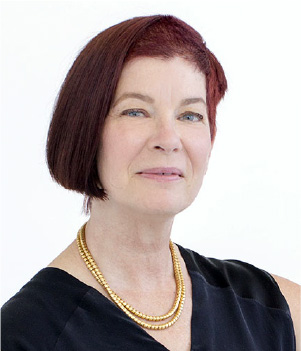
Mitchell Baker co-founded the Mozilla Project to support the open and innovative web. Mitchell represents Mozilla in the public with a focus on policy, open source, and community, engaging in areas that touch on Mozilla’s unique history and ethos.Mitchell advocates for the open internet, open source, and the importance of connecting technology to its impact on individuals and society. Highly regarded as one of the pioneers of the web and for bringing the open internet to consumers, she was instrumental in Netscape’s decision to release its source code to the public. This led to the release of the Firefox browser and the creation of the Mozilla Foundation which spans software product development, educational initiatives, and participatory movements.

Lisa Kaplan founded Alethea in 2019 to help customers navigate the new digital reality and protect against online risks stemming from disinformation, misinformation, and social media manipulation. Under Kaplan’s leadership, the Alethea team has built the scalable solutions that enable the detection and mitigation of online risk targeting organizations, institutions, and brands.Kaplan has briefed US, NATO, EU, and G-7 policymakers and officials on disinformation. She is frequently sought out by top-tier media outlets, such as The New York Times, WSJ, Bloomberg, CNN, and the Washington Post for her commentary and analysis on industry issues. She was named to Inc’s 2024 Female Founders List for innovative entrepreneurs; PRWeak’s 2023 40 Under 40 list for rising stars in strategic and crisis communications; and the 2021 Forbes 30 Under 30 list of top entrepreneurs and leaders. Kaplan is a graduate of Colby College.
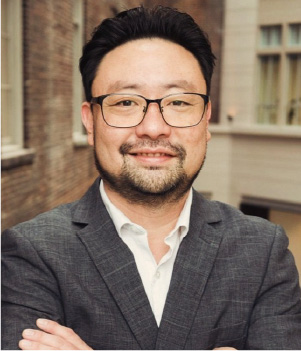
Taek Lee joined Gallup in 2011 and is responsible for corporate financial governance and financial analytics to ensure Gallup's growth. Additionally, he oversees Gallup's digital and licensing channels. As Chief Financial Officer, Taek's mission is to set Gallup up for short-term and long-term financial success and sustainable growth into the future.Prior to his current role, Taek was a Regional Director, leading Gallup's businesses across central U.S., Latin America, and global licensing. He has extensive client experience in Asia, leading the consulting group for southeast Asia. He also served as a strategic adviser to senior executives and leaders across numerous industries in Asia, applying Gallup science to help organizations improve business outcomes. Taek specializes in management-level consultancy using Gallup's workplace and marketplace analytics.Taek received his bachelor's degree from Long Beach State University, his MBA from Pepperdine University, and his doctorate in organizational leadership from Eastern University.

Alice Albrecht work on AI-enabled products at SmartNews. Alice has been using machine learning to build better products in tech for over a decade and prior to that was an academic, focusing on Cognitive Neuroscience.
Salon Ⅱ
<Technology & Business>
Salon Ⅱ
#3 Breakout Sessions
AI Boom: The Future of Startups and VCs
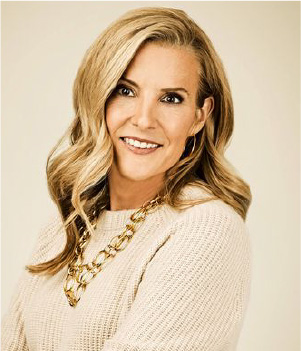
A Forbes Midas List honoree five years in a row, Rebecca Lynn is Managing Director at Canvas Prime, an offshoot of Canvas Ventures. Rebecca’s investment track record includes leading the early-stage investment in Lending Club, which became the largest US technology IPO of 2014 and the fourth largest US Internet IPO since 2001, behind only Facebook, Twitter, and Google. Her other successful early-stage investments include Doximity (DOCS), Casetext (acq Thomson Reuters), Luminar (LAZR), Check (acq Intuit), Gabi (acq Experian), and Future Advisor (acq BlackRock). Rebecca has been recognized as a Senior Deal Maker by the Wall Street Journal and a Top Woman VC by the New York Times.
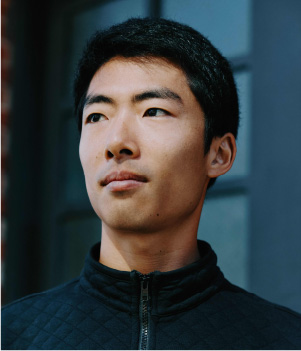
Kojin is a co-founder of Robust Intelligence, an AI Security startup based in San Francisco. The company raised $60M, led by Sequoia Capital and Tiger Global, and was trusted by leading companies, including JPMorgan Chase, Apple, IBM, Intuit, the US Department of Defense. In September 2024, Kojin sold Robust Intelligence to Cisco and now leads its AI organization. Kojin is recognized as Forbes 30 Under 30 in North America and Japan. Kojin graduated from Harvard University with a degree in computer science and statistics. Kojin spent most of his childhood in Tokyo, Japan, until he moved to the US for college.

Andrew joined NEA in 2014 and invests in founders innovating in AI/ML, fintech, frontier tech, infrastructure software, technically differentiated SaaS and security. Prior to NEA, he was a member of Blackstone’s M&A Group. Prior to Blackstone, he founded Flicstart. Andrew serves on the Cornell University Council, the Advisory Council for Entrepreneurship at Cornell, and is President Emeritus of the Cornell Venture Capital Club. He earned his master’s degree as a Schwarzman Scholar and his bachelor’s degree in economics and science of earth systems in engineering at Cornell.

Emre is General Partner at Globis Capital Partners, leading investments in IT startups targeting digital transformation of various industries. His portfolio includes GLM (acquired), Photosynth (TSE:4379), Sensyn Robotics, MFS, New Standard, Global Mobility Service, Shippio, CADDi, Matsuri Technologies, estie, Leaner Technologies, ascend and Facilo. He teaches at Globis University Graduate School of Management (MBA).Emre graduated from Harvard Business School (MBA) and Ohio State University.
Salon Ⅲ
<Politics & Economy>
Salon Ⅲ
#4 Breakout Sessions
Trump 2.0 and Geopolitics: What Business Leaders Need to Know
OFF THE RECORD
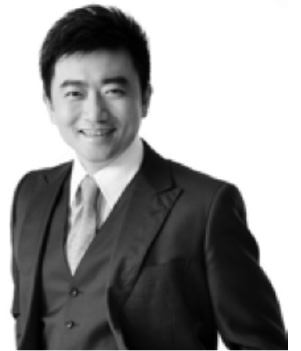
Chenggang is an advisor to businesses and organizations seeking deep insight into China and its evolving role in the world, thanks to his unique ability to explain China to Western audiences and the West to Chinese audiences. Chenggang spent 15 years as a journalist covering China’s business, finance, and economy. As the host of China’s most watched daily TV program on business and current affairs, he was also the country’s top TV interviewer with the world’s political, business and intellectual leaders. With over 10 million followers on Chinese social media before 2015, he was an opinion leader as much as a news anchor with his own story a mirror of modern China.
Chenggang was the founding anchorman and lead correspondent of the business shows on China’s first English language international TV channel, which evolved into CGTN. He was China’s first bilingual TV host, with hundreds of millions of viewers both at home and abroad.
He played a key role in helping create China’s first business/finance TV channel — CCTV 2 in 2007/2008 and became the lead host/anchor of the flagship shows. His coverage of the 2008 Financial Crisis and its impact on China scored the highest ever viewership of business TV in China. He was a recipient of numerous top Chinese TV awards, including the Golden Microphone Award and Best TV Host of the Year.
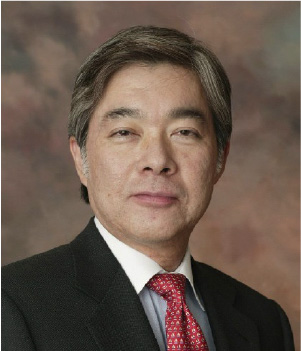
Glen S. Fukushima is a Senior Fellow at the Center for American Progress, a Washington, D.C. think tank. In October 2021, President Joseph R. Biden nominated him to be Vice Chairman of the Securities Investor Protection Corporation, and the U.S. Senate confirmed him in April 2022. After practicing law, he served as Director for Japanese Affairs (1985-88) and Deputy Assistant United States Trade Representative for Japan and China (1988-90) at the Office of the United States Trade Representative (USTR), Executive Office of the President. From 1990 to 2012, he was based in Tokyo as a senior business executive with one European and four American multinationals and was elected to two terms as President of the American Chamber of Commerce in Japan. He is a member of the Council on Foreign Relations and of the Asia Society’s Global Council. A third-generation Japanese American raised in California, he was educated at Deep Springs College, Stanford University, Harvard University, Keio University, and the University of Tokyo, where he was a Fulbright Fellow.
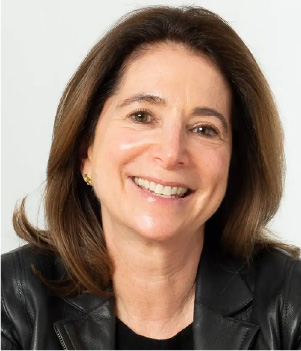
Pamela Passman is based in APCO’s New York office where she previously led the office as managing director. She has four decades of experience advising organizations on managing global geopolitical risk by working with key stakeholders and identifying issues critical to success. Pamela leads and serves as an advisor to APCO's largest global accounts on business-critical issues, helping each navigate the complex business environment. In particular, Pamela works with companies on the intersection of technology and policy and market regulation across multiple sectors.
At Microsoft for 15 years, Pamela was the corporate vice president and deputy general counsel, Global Corporate and Regulatory Affairs, and led Microsoft’s global government relations and public policy and regulatory work. Pamela first joined Microsoft Asia and was based in Tokyo as legal counsel in the region. Her legal career started in Washington, D.C. with Covington & Burling and Nagashima & Ohno in Tokyo, Japan.
She is a graduate of Lafayette College and the University of Virginia School of Law.

Managing Director and Global Head of Venture Capital Banking, Barclays; Professor of Practice, Thunderbird School of Management and Law School, Arizona State University. He focuses on emerging technology companies, including food technology and alternative proteins. Co-founder and serves on the board of the Truman National Security Project.
Formerly: Partner, Andreessen Horowtiz; prior to entering the private sector, he spent seven years in senior national security positions in the U.S. government: Deputy Assistant Secretary of Defense for Middle East Policy; National Security Council as White House Special Assistant to the President and Senior Director for International Economic Affairs; Senior Advisor to two National Security Advisors. Doctorate in International Relations (Oxford University); J.D. (Yale Law School); B.A. and M.A. in International Policy Studies (Stanford University).
A Member of the Board of Directors, The American Ditchley Foundation.

Kenji E. Kushida is Senior Fellow at the CarnegieEndowment for International Peace Asia Program directing Japanprogramming, and he leads the Japan-Silicon Valley InnovationInitiative @ Carnegie (J-SV). Senior Advisor at Macro Advisory Partners, a global strategic consultancy. Previously a Research Scholar at theAsia-Pacific Research Center (APARC) at StanfordUniversity, he spearheaded the Stanford Silicon Valley-New JapanProject (SV-NJ). He is also an International Research Fellow at theCanon Institute for Global Studies (CIGS). He holds aPhD in political science from the University of California, Berkeley,an MA in East Asian studies and BAs in economics and East Asianstudies, all from Stanford University.
Salon Ⅱ
<Technology & Business>
Salon Ⅱ
#4 Breakout Sessions
What You Need to Know About AI in 2025

Seamus Blackley has collaborated creatively with Steven Spielberg and technically with Bill Gates. Trained as a Jazz musician and a theoretical physicist, he has worked on projects from the discovery of the top quark to the launch of Guitar Hero. He wrote the proposal and formed the division of Microsoft that created Xbox. He lives in Pasadena CA where he’s the CEO of a secret company, the father of two dachshunds, a hound, a cat, and several very charming fish.
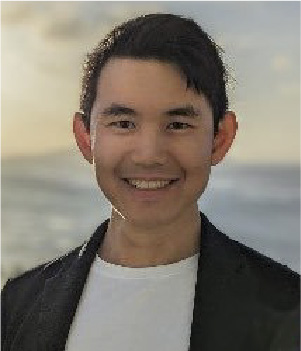
Shixiang Shane Gu is a Research Scientist and Manager at Google DeepMind, leading the Multilinguality Post-Training team for Gemini. He previously worked on ChatGPT at OpenAI and as a Research Scientist at Google Brain. Shane has made significant contributions to generative modeling, reinforcement learning, robotics, and language modeling. He holds a PhD in Machine Learning from Cambridge, supervised by Richard E. Turner, Zoubin Ghahramani, and Bernhard Schoelkopf, and a B.ASc. from the University of Toronto, advised by Geoffrey Hinton. Shane has also held visiting positions at Stanford and the University of Tokyo. Beyond his research, he angel invests and advises several AI startups across the US and Japan, including Pika Labs and MultiOn. Born in Japan to Chinese parents, Shane is a Canadian citizen fluent in three languages.

Madhu Shalini Iyer is a partner at Rocketship.vc, a Silicon Valley based fund investing globally. She was the Chief Data Officer of Gojek and helped grow the business into a $10 billion unicorn. In addition to being a board member, she started the Singapore office and played an active role in the strategy, new business development, and ‘data as a competitive advantage’. Prior to Gojek, Madhu was part of the founding team of Intuit’s Quickbooks Lending Platform. As the data science leader at Intuit, Madhu helped grow the platform to $300 million and holds 2 patents in the areas of user data augmented algorithms for financial inclusion. Madhu was also the Chief Data Officer for Ethoslending. There she built the underwriting platform and was responsible for all b2c revenue, resulting in $65 million gross market value per month. Madhu was further responsible for building and running the marketing team. Prior, Madhu was a partner at a $150m private equity fund, Stem Financial, in Hong Kong. She started her career as a senior data scientist with a leading think tank in Menlo Park, CA.

Erin Teague is the Chief Product Officer at Character.AI where she is responsible for the product management, design, user research, data science, marketing and community functions. Prior to her current position, she was a senior director of product management at Google. In this role, she served as the product and technical advisor to Google's Chief Technologist across important product areas including Search, Gemini, Ads, Maps, Assistant, Payments, Shopping and Long-term Bets product areas. Prior to this role, she was the global product lead across several YouTube verticals including Sports, Film, and TV. She led YouTube’s Virtual and Augmented Reality product team, where she was responsible for immersive video and created the YouTube VR app, which is rated #1 across multiple platforms. She also founded and led YouTube’s Racial Justice, Equity, and Product Inclusion product teams. Before YouTube, Teague was the director of product for Yahoo’s Fantasy Sports and product manager at Twitter. She began her career as a software engineer at Morgan Stanley, where she designed algorithms embedded in electronic trading applications in the firm’s Algorithmic Trading Technology group. Teague is the recipient of the BET Her Tech Maven Award and has been recognized as one of the “100 Most Influential Women in Silicon Valley” by Silicon Valley Business Journal, “The Next Generation of Tech Stars” by Refinery29, “40 Under 40 in Silicon Valley." She has also been named one of Glamour Magazine’s “35 Women Under 35 Who Are Changing the Tech Industry” and one of Business Insider's "Silicon Valley 100.” Originally from Detroit, Michigan, Teague holds an MBA from Harvard Business School, where she was a Morgan Stanley Fellow, and a BSE in computer engineering from the University of Michigan, where she graduated with distinction as an Intel Scholar.
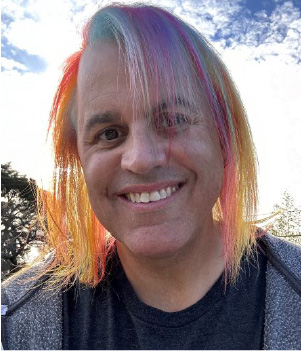
Cory Ondrejka is the CTO for SmartNews, where he is responsible for delivering quality news to millions of people in Japan and the United States. He was previously VP of Product Management and Technical Advisor to the CEO at Google, where he led the Core Experience team, responsible for improving the product experience across all of Google’s products. His teams delivered an entirely new user experience for Google products in Material You, multiple cutting edge Generative AI experiences, and transformed foundational technology depended on by billions of people. Prior to Google, Cory led the mobile transition at Meta as VP Mobile, was the co-creator and founding-CTO of Second Life, and shipped multiple video games. Cory Ondrejka is a Senior Fellow at the Burnes Center for Social Change at Northeastern University and a graduate of the United States Naval Academy and former Naval Officer.
#5 Plenary Session
Salon ⅢMariano-Florentino (Tino) Cuéllar
Timothy C. Draper
Jane Harman
Moderator: Jesper Koll
Salon Ⅲ
#5 Plenary Session
Going Forward: How to Lead Innovation
for a New Trust in the Trump and AI Era

Mariano-Florentino (Tino) Cuéllar is the tenth president of the Carnegie Endowment for International Peace, an institution created by Andrew Carnegie in 1910 to advise policymakers, support diplomacy, and conduct independent research on international cooperation, conflict, and governance. A former justice of the Supreme Court of California, Cuéllar has served three U.S. presidential administrations at the White House and in federal agencies and was the Stanley Morrison Professor at Stanford University, where he held appointments in law, political science, and international affairs and led the university’s Freeman Spogli Institute for International Studies. He has served on the President’s Intelligence Advisory Board and the U.S. Department of State’s Foreign Affairs Policy Board, and chairs the board of the William & Flora Hewlett Foundation.

Tim Draper founded Draper Associates, DFJ and the Draper Venture Network, a global network of venture capital funds. He funded Baidu, Tesla, Skype, SpaceX, Twitch, Hotmail, Focus Media, Robinhood, Athenahealth, Box, Cruise Automation, Carta, Planet, PTC and 15 other unicorns at the seed stage. He is a supporter and global thought leader for entrepreneurs everywhere, and is a leading spokesperson for Bitcoin, Blockchain, ICOs and cryptocurrencies, having won the Bitcoin US Marshall’s auction in 2014, invested in over 50 crypto companies, and led investments in Coinbase, Ledger, Tezos, and Bancor, among others.
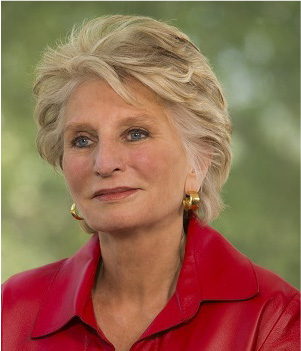
Hon. Jane Harman served nine terms in Congress as Representative of the aerospace center of Los Angeles and was ranking member of the House Intelligence Committee after 9/11. She left the House in 2011, to become the first woman president and CEO of the Wilson Center and has been President Emerita since 2021. Harman has served on numerous government advisory boards (Central Intelligence Agency, Director of National Intelligence, DoD, and State Department) and currently is a member of the President’s Intelligence Advisory Board and the NASA and DHS advisory councils. She chaired the 2022-2024 Commission on the National Defense Strategy, co-chairs the Board of Freedom House, and is a member the Aspen Strategy Group, the Munich Security Conference Executive Committee, Trilateral Commission, and the Board of Governors of the National Intelligence University. Harman’s book, Insanity Defense: Why Our Failure to Confront Hard National Security Problems Makes Us Less Safe, was published by St. Martin’s Press in 2021.

Jesper Koll has been researching and investing in Japan since becoming a resident in 1986. Over the past two decades, Jesper has been consistently recognized as one of the top Japan strategists/economists, having worked as Chief Strategist and Head of Research for U.S. investment banks J.P. Morgan and Merrill Lynch. He currently serves as Expert Director for the Monex Group and the Japan Catalyst Fund (Japan’s 1st retail investor based corporate engagement/activist fund). His analysis and insights have earned him a position on several Japanese government and corporate advisory committees, including Tokyo Governor Yuriko Koike’s Advisory Board. In 2022, he was appointed Global Ambassador for Tokyo’s Financial Center initiative. Jesper serves as Board Director of OIST, the Okinawa Institute for Science and Technology and is a Founder and Board Director of the Asia Society Japan and heads their Policy Committee. He is one of the few non-Japanese members of the Keizai Doyukai, the Japan Association of Corporate Executives; and serves on the board of several Japan-based start-ups. He has written three books in Japanese and, in 2021, created the acclaimed video/pod-cast series “Japan - Capitalism that works”. Jesper is an economist, angel-investor, patron; and yes, a Japan Optimist.
Closing Session
Salon ⅢG1 Silicon Valley Advisory Board Members
Salon Ⅲ
Closing Session
Closing Session
Cocktail Time
Ballroom TerraceBallroom Terrace
Cocktail Time
Farewell Dinner
Miramar / SalonⅣMiramar / SalonⅣ
Farewell Dinner
Afterparty
Miramar / SalonⅣMiramar / SalonⅣ
Afterparty
Programs are subject to change without notice.
| 日時 | Wednesday, 16, 2025 through Thursday, 17, 2025 |
|---|
| M | Moderator |
|---|
Cocktail Time
Ocean LawnOcean Lawn
Cocktail Time
Welcome Reception Dinner
Ocean LawnAlex Liu
Ocean Lawn
Welcome Reception Dinner
Welcome Reception Dinner
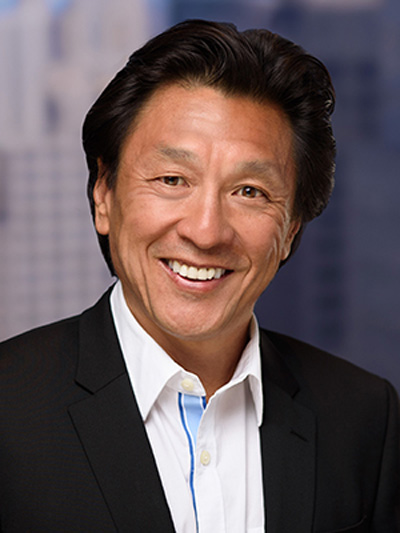
Alex Liu is the managing partner and chairman of the board of directors at Kearney. Alex has been recognized by Consulting Magazine as a global Top 25 Consultant and by the Global Diversity List as a top 10 Senior Executive. He is quoted regularly in leading business media, including Harvard Business Review, Financial Times, and CNBC. He speaks frequently on culture, hosts the popular podcast Joy@Work, and has recently authored Joy Works. He was CEO of a technology start-up and a partner with Boston Consulting Group. Alex has an MBA from Harvard and a BA from Yale.
| M | Moderator |
|---|
Light Breakfast
MiramarMiramar
Light Breakfast
Opening Session
Salon ⅢYoshito Hori
Salon Ⅲ
Opening Session

Yoshito Hori is the founder and president of GLOBIS University, the No.1 business school in Japan. He is also a founding partner of GLOBIS Capital Partners, the No.1 venture capital firm in Japan, and president of the G1 Institute, a platform to create a better Japan. His other roles include founder of the KIBOW Foundation, a project to support the revitalization after the Great Tohoku Earthquake; owner of the Ibaraki Robots, a professional basketball team in his hometown of Mito; owner of the Ibaraki Broadcasting System, Ibaraki’s only prefecture-wide media company; and producer of LuckyFes, an annual music festival held in Mito.
He received his BS in engineering from Kyoto University and holds an MBA from Harvard Business School.
#1 Plenary Session
Salon ⅢRichard Edelman
Jane Harman
John Roos
Moderator: Jesper Koll
Salon Ⅲ
#1 Plenary Session
US & Japan: Building Global Stability with Unwavering Bilateral Strength
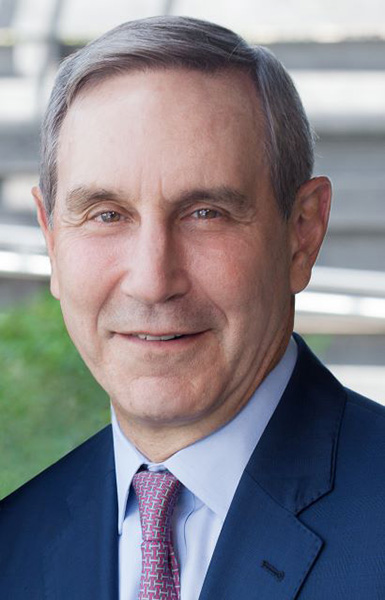
Richard Edelman is the CEO of Edelman, a global communications firm, and Chairman of Daniel J. Edelman Holdings, the firm’s holding company. Founded in 1952 by his father Dan, Edelman remains independent and family owned with 6,000+ employees in 66 offices across 28 countries. Now in his 26th year as CEO, Richard is one of the longest tenured agency leaders in the marketing services industry. Under Richard’s leadership, Edelman’s revenue increased 11.5 times enabling it to become the largest communications firm in the world surpassing $1 billion in revenue. Richard has advised senior executives through significant disruptions within their organizations, including Samsung, Starbucks and United. As the creator of the annual Edelman Trust Barometer, Richard has become one of the foremost authorities on trust. The Edelman Trust Barometer is widely recognized with its insights regularly cited in the media.
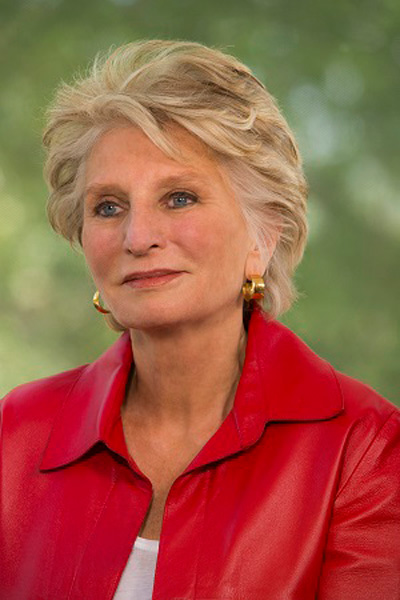
Jane Harman served nine terms in Congress as the U.S. representative for California's 36th congressional district and was ranking member of the Intelligence Committee after 9/11. She left the House in 2011 to become the first woman president and CEO of the Wilson Center, transitioning to President Emerita in 2021.
Currently she chairs the Commission on the National Defense Strategy and the co-chairs the board of Freedom House. She is also a Trustee of the Aspen Institute, the Trilateral Commission, a Presidential Scholar at USC and serves on the advisory boards of the Department of Homeland Security and NASA. Harman’s book, “Insanity Defense: Why Our Failure to Confront Hard National Security Problems Makes Us Less Safe,” was published by St. Martin’s Press in 2021.
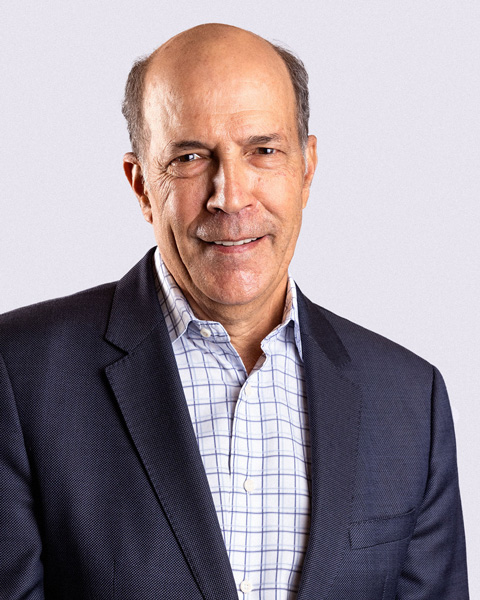
John V. Roos is a Founding Partner at Geodesic Capital, a venture capital firm bridging Japan and Silicon Valley by investing in growth-stage technology companies, helping them with market entry, strategy, and overall operational support in Japan. He is a member of the Board of Directors at Salesforce, Inc., advisor to the Toyota Research Institute, and Senior Advisor at Centerview Partners. He serves on the Board of Directors of The Maureen and Mike Mansfield Foundation and is an Advisory Board member at the Stanford Center for Asian Health Research and Education. From 2009-2013 he served as the United States Ambassador to Japan. In May 2022, he was awarded the Grand Cordon of the Order of the Rising Sun, the highest honor to be given to a foreign national. Ambassador Roos graduated with honors and distinction from Stanford University and from Stanford Law School where he was Order of the Coif.

Jesper Koll has been researching and investing in Japan since becoming a resident in 1986. Over the past two decades, Jesper has been consistently recognized as one of the top Japan strategists/economists, having worked as Chief Strategist and Head of Research for U.S. investment banks J.P. Morgan and Merrill Lynch. He currently serves as Expert Director for the Monex Group and the Japan Catalyst Fund (Japan’s 1st retail investor based corporate engagement/activist fund). His analysis and insights have earned him a position on several Japanese government and corporate advisory committees, including Tokyo Governor Yuriko Koike’s Advisory Board. In 2022, he was appointed Global Ambassador for Tokyo’s Financial Center initiative. Jesper serves as Board Director of OIST, the Okinawa Institute for Science and Technology and is a Founder and Board Director of the Asia Society Japan and heads their Policy Committee. He is one of the few non-Japanese members of the Keizai Doyukai, the Japan Association of Corporate Executives; and serves on the board of several Japan-based start-ups. He has written three books in Japanese and, in 2021, created the acclaimed video/pod-cast series “Japan - Capitalism that works”.
Jesper is an economist, angel-investor, patron; and yes, a Japan Optimist.
Salon Ⅲ
<Politics & Society>
Salon Ⅲ
#2 Breakout Sessions <Politics & Society>
Geopolitics and AI in East Asia
OFF THE RECORD

Evan A. Feigenbaum is Vice President for Studies at the Carnegie Endowment for International Peace. He was also the 2019-20 James R. Schlesinger Distinguished Professor at the Miller Center of Public Affairs at the University of Virginia, where he is now a practitioner senior fellow. Initially an academic with a PhD in Chinese politics from Stanford University, his career has spanned government service, think tanks, the private sector, and three regions of Asia. From 2001 to 2009, he served at the U.S. State Department as Deputy Assistant Secretary of State for South Asia (2007–2009), Deputy Assistant Secretary of State for Central Asia (2006–2007), Member of the Policy Planning Staff with principal responsibility for East Asia and the Pacific (2001–2006), and an adviser on China to Deputy Secretary of State Robert B. Zoellick.

Michael Sellitto is the Head of Global Affairs at Anthropic, an AI safety and research company.
Prior to joining Anthropic, Michael was the founding Deputy Director of the Stanford Institute for Human-Centered Artificial Intelligence (HAI), which is dedicated to advancing AI research, education, policy, and practice to improve the human condition. As HAI’s first staff member, he was instrumental in designing and executing the Institute’s strategic plans and establishing HAI’s global reputation among policymakers.
Michael served in the White House as Director for Cybersecurity Policy on the National Security Council staff from 2015-2018. He led international engagement on cybersecurity policy and strategy, promoted international adoption of a framework for strategic stability in cyberspace, and advanced issues related to the digital economy and Internet governance. Before that, Michael served as Special Assistant to Deputy Secretaries of State William J. Burns and Antony Blinken, advising the Deputies on political, energy, security, and trade issues related to South and Central Asia and on worldwide cyber policy and counterterrorism strategy.
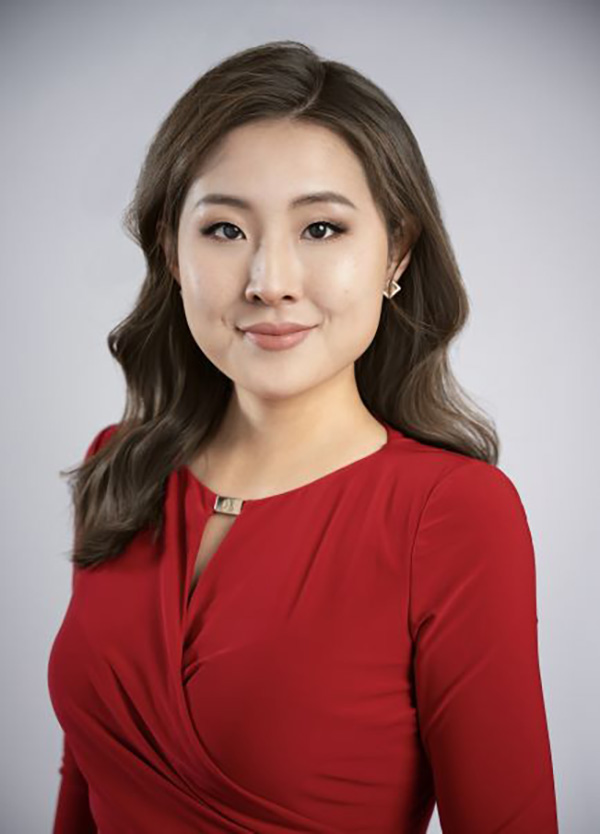
Jenny Xiao is a partner at Leonis Capital, a research-focused VC fund based in Silicon Valley. Before Leonis, she was a researcher at OpenAI and a Ph.D. candidate at Columbia University. With deep domain expertise in AI/ML, Jenny pioneers a research-driven approach to seed and pre-seed investing, focusing on AI, developer tools, and B2B software. Her Ph.D. dissertation explores the AI landscape in the U.S. and China, covering the two countries’ technological advancement, startup and big tech ecosystems, and policy and regulatory environments. Her research has been featured in the New York Times, WSJ, the Economist, and Foreign Affairs. Her work at Leonis is the topic of an extensive Harvard Business School (HBS) case study. She is also a frequent speaker at startup, business, and policy conferences, including the Columbia China Forum, the Northwestern Kellogg Business Conference, and the Hong Kong Cyberport VC Forum.

Kenji E. Kushida is Senior Fellow at the Carnegie Endowment for International Peace Asia Program directing Japan programming, and he leads the Japan-Silicon Valley Innovation Initiative @ Carnegie (J-SV). Senior Advisor at Macro Advisory Partners, a global strategic consultancy. Previously a Research Scholar at the Asia-Pacific Research Center (APARC) at Stanford University, he spearheaded the Stanford Silicon Valley-New Japan Project (SV-NJ). He is also an International Research Fellow at the Canon Institute for Global Studies (CIGS). He holds a PhD in political science from the University of California, Berkeley, an MA in East Asian studies and BAs in economics and East Asian studies, all from Stanford University.
Salon Ⅱ
<Tech & Business>
Salon Ⅱ
#2 Breakout Sessions <Tech & Business>
Scaling Startups and Teams: Ensuring Growth Among Constraints
OFF THE RECORD

James Everingham is VP of Engineering at Meta, supporting the platforms and tools. Most recently, James was co-founder and SVP of engineering at Lightspark, building core infrastructure on the Lightning Network. Previously, he was Vice President of Engineering for Novi (Meta) and co-creator of Diem. Previously, James was the Head of Engineering at Instagram. James has led many world-class engineering teams throughout his 35-year career as a manager, entrepreneur, and technology developer. At Yahoo, he was Vice President of Engineering for Yahoo media properties after acquiring Luminate, an interactive image technology company he founded. His previous roles include CTO and founding team member of LiveOps, senior director of engineering at Tellme (acquired by Microsoft), and senior director of engineering at Netscape Communications, where he was responsible for the flagship Netscape browser. Before joining Netscape, James held engineering and management positions at Oracle and Borland International.

Catherine Porter is a technology executive with more than 20 years' experience in global consumer and enterprise software companies (e.g., Oracle, Google, LinkedIn, Meta). She specializes in strategic business development and commercial objectives for globally scaling companies. She currently supports Globis Capital Partners and Mysten Labs as an advisor, and is the chief business officer for Prove.

Emre is General Partner at Globis Capital Partners, leading investments in IT startups targeting digital transformation of various industries. His portfolio includes GLM (acquired), Photosynth (TSE:4379), Sensyn Robotics, MFS, New Standard, Global Mobility Service, Shippio, CADDi, Matsuri Technologies, estie, Leaner Technologies, ascend and Facilo.
He teaches at Globis University Graduate School of Management (MBA).
Emre graduated from Harvard Business School (MBA) and Ohio State University.
Lunch Group Discussions
Miramar| Lunch Group A | Genichi Tamatsuka President and CEO, Lotte Holdings Co.,Ltd. |
| Lunch Group B | Mitsuru Izumo President, Euglena Co., Ltd. |
| Lunch Group C | Shintaro Yamada CEO, Mercari, Inc. |
| Lunch Group D | David Alan Makman Attorney, Law Offices of David A. Makman |
| Lunch Group E | Yasukane Matsumoto Founder&CEO, JOSYS INC. |
| Lunch Group F | Kiran Sethi President, Jupiter International Corporation |
| Lunch Group G | Takao Someya Executive Director and Vice President, The University of Tokyo |
| Lunch Group H | Richard B. Dasher Director, US-Asia Technology Management Center, Stanford University |
| Lunch Group I | Stephen Barnham CIO and CDO, Dai-ichi Life Holdings, Inc. |
| Lunch Group J | Toshiko Mori Founder CEO, Toshiko Mori Architect PLLC / Professor, Harvard University |
Miramar
Lunch Group Discussions
"What's next?" Actions each one of us should take
| Lunch Group A | Genichi Tamatsuka President and CEO, Lotte Holdings Co.,Ltd. |
| Lunch Group B | Mitsuru Izumo President, Euglena Co., Ltd. |
| Lunch Group C | Shintaro Yamada CEO, Mercari, Inc. |
| Lunch Group D | David Alan Makman Attorney, Law Offices of David A. Makman |
| Lunch Group E | Yasukane Matsumoto Founder&CEO, JOSYS INC. |
| Lunch Group F | Kiran Sethi President, Jupiter International Corporation |
| Lunch Group G | Takao Someya Executive Director and Vice President, The University of Tokyo |
| Lunch Group H | Richard B. Dasher Director, US-Asia Technology Management Center, Stanford University |
| Lunch Group I | Stephen Barnham CIO and CDO, Dai-ichi Life Holdings, Inc. |
| Lunch Group J | Toshiko Mori Founder CEO, Toshiko Mori Architect PLLC / Professor, Harvard University |
#3 Dialogue Session
Salon ⅢKristi Yamaguchi
Moderator: Daniel Springer
Salon Ⅲ
#3 Dialogue Session
Dialogue Session

Kristi Yamaguchi captured the gold medal in the 1992 Winter Olympics in Albertville, France in figure skating.
As a trailblazer and role model, Kristi became the first Asian American to win a gold medal, World Champion, two-time U.S. National Champion, member of the US Figure Skating Hall of Fame, World Figure Skating Hall of Fame and the US Olympic Hall of Fame. Following a long and successful career in professional figure skating, Kristi took to the dance floor to win top honors with partner Mark Ballas on the popular TV show “Dancing With The Stars.
”Kristi has added New York Times Best-Selling author to her list of achievements with three children’s books, “Dream Big, Little Pig!”, and then following up with “It’s A Big World, Little Pig!” and “Cara’s Kindness.”
In 1996, she created Always Dream whose mission is to ensure children from low‑income families have access to high‑quality books in the home environment and extensive family engagement support. Kristi Yamaguchi's Always Dream believes their greatest gift and ability to proactively impact a child's life is by building a love of reading and engaging the parents at an early stage.
Recently, Kristi was recognized with the “Community Spirit” Award from the US Olympic Committee and the Heisman Humanitarian Award.
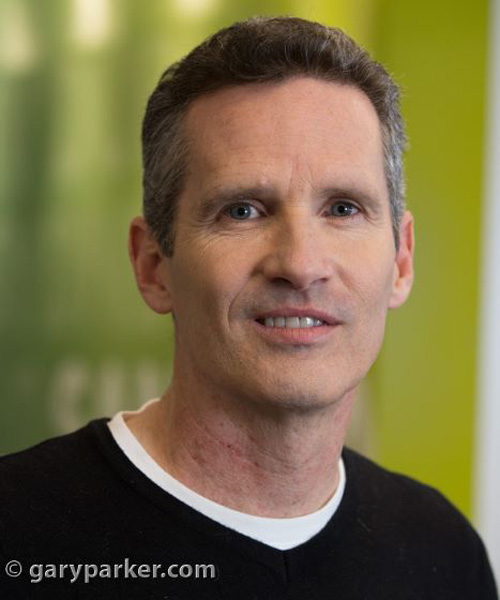
Daniel Springer serves as Board Director of UiPath and DocuSign, where he was CEO until June 2022. Springer has more than 25 years of executive leadership and experience in driving innovation and hyper growth across technology and, specifically, Software-as-a-Service (SaaS) businesses.
Prior to DocuSign, Springer served as Chairman and CEO at Responsys for ten years where he transformed and scaled the business from private start up to the leading cross-channel marketing automation platform globally as a publicly traded company.
Springer holds an MBA from Harvard University and an AB in Mathematics and Economics from Occidental College.
Springer has served as a board member at both public and private companies, including iCIMS, Ansira, YuMe, ELOAN (Banco Popular), Heighten, Persado, and eGroups (Yahoo!), as well as at nonprofits, including The Boys and Girls Club, YearUp, The Urban School, Shop.org, AdTech, The Randall Museum and The San Francisco Friends School.
Salon Ⅲ
<Politics & Society>
Salon Ⅲ
#4 Breakout Sessions <Politics & Society>
Trends in the Indo-Pacific
OFF THE RECORD

Keiko Honda is Adjunct Professor of Columbia University’s School of International and Public Affairs, where she teaches ESG Investing to graduate students. Keiko is also a Board Member of Ricruit, Mitsubishi UFJ Financial Group and AGC and serves UN's Investment Committee.
Honda was the CEO and EVP of the Multilateral Investment Guarantee Agency (MIGA), the political risk insurance and credit enhancement arm of the World Bank Group.
Before joining MIGA, Honda was the first woman senior partner in Asia at McKinsey & Company.
Honda holds a bachelor’s degree from Ochanomizu University and an MBA from the University of Pennsylvania’s Wharton School, where she was selected as a Fulbright Scholar.
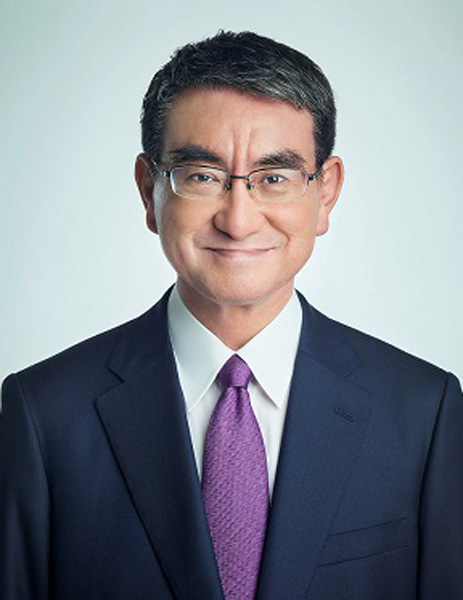
KONO Taro, 60, a ninth-term Member of the House of Representatives, has been appointed Digital Minister, Minister for Cyber Security and Minister for Administrative Affairs.
Among positions he has held in the past are Foreign Minister; Defense Minister; Minister in charge of COVID-19 Vaccine Roll-out; Chairman of the National Public Safety Commission, or Minister in charge of the National Police Organization; Minister for Regulatory Reform; Minister for Administrative Reform; Minister for Civil Service Reform; Minister for Consumer Affairs and Food Safety; Minister for Disaster Management; and Chairman of the Standing Committee on Foreign Affairs of the House of Representatives. He is a graduate of the School of Foreign Service, Georgetown University. He was Chairman of the Japan Race Horse Association and Chairman of the Shonan Bellmare Football Club, the 1995 Asia Champion Soccer Club. He is married to Kaori and has a son, Ippei.

The Hon Dr Rudd AC served as Australia’s twenty-sixth Prime Minister from 2007 to 2010, then as Minister for Foreign Affairs, before a second term as Prime Minister in 2013. Dr Rudd was most recently the President and CEO of the Asia Society Policy Institute.
Dr Rudd holds a PhD from Oxford University and a Bachelor of Arts (Honours) from the Australian National University.
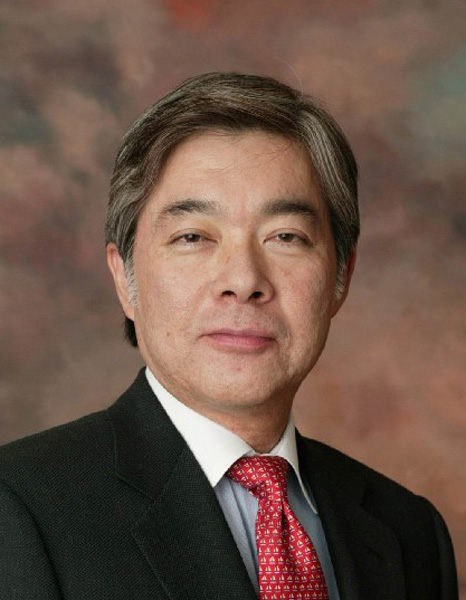
Glen S. Fukushima is a Senior Fellow at the Center for American Progress, a Washington, D.C. think tank. In October 2021, President Joseph R. Biden nominated him to be Vice Chairman of the Securities Investor Protection Corporation, and the U.S. Senate confirmed him in April 2022. After practicing law, he served as Director for Japanese Affairs (1985-88) and Deputy Assistant United States Trade Representative for Japan and China (1988-90) at the Office of the United States Trade Representative (USTR), Executive Office of the President. From 1990 to 2012, he was based in Tokyo as a senior business executive with one European and four American multinationals and was elected to two terms as President of the American Chamber of Commerce in Japan. He is a member of the Council on Foreign Relations and of the Asia Society’s Global Council. A third-generation Japanese American raised in California, he was educated at Deep Springs College, Stanford University, Harvard University, Keio University, and the University of Tokyo, where he was a Fulbright Fellow.
Salon Ⅱ
<Tech & Business>
Salon Ⅱ
#4 Breakout Sessions <Tech & Business>
Tech & Design
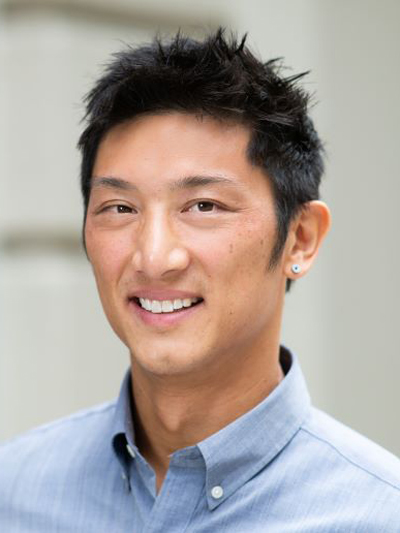
Dan founded Eskridge to help ambitious leaders deploy practical applications of AI. He leads AI strategy and implementation for clients, particularly within marketing use cases. Previously, Dan led Amazon Ads Creative Studio, supporting advertisers through technology and scaled services. He has spent over a decade partnering with Fortune 100 clients on digital transformation initiatives at Huge, founded and successfully exited a SaaS startup and held product management roles at Microsoft and Motorola. Dan holds economics and computer science degrees from UPenn.

Sho Kuwamoto is Vice President, Product on Figma editor. Prior to that he held product leadership positions at Medium, Macromedia, and Adobe. He’s known for having deep customer focus and a love for helping people create.
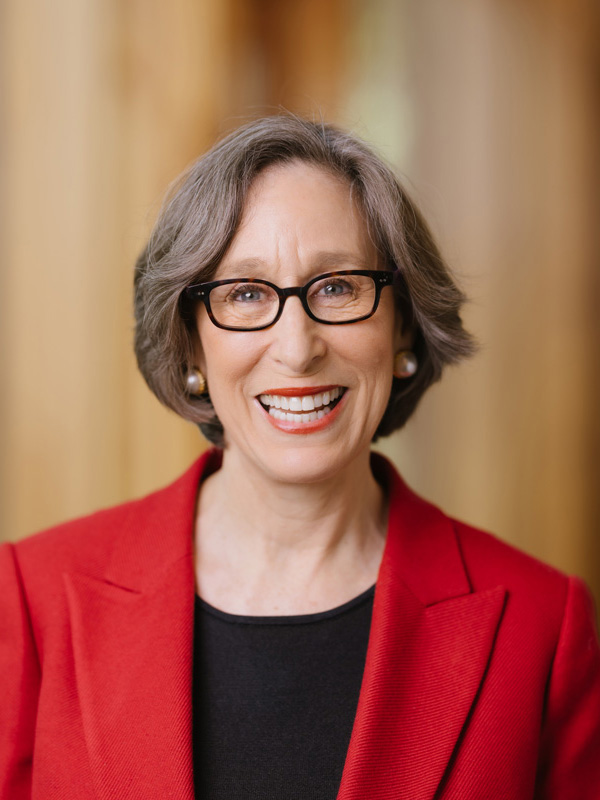
Dr. Tina Seelig is Executive Director of Knight-Hennessy Scholars at Stanford University, which supports graduate students from across the university, and prepare graduates to address complex challenges facing the world. She is also Director Emeritus of the Stanford Technology Ventures Program. She also teaches courses on leadership, innovation, and entrepreneurship at the Hasso Plattner Institute of Design (d.school) at Stanford. Dr. Seelig earned her PhD in Neuroscience at Stanford Medical School, and has been a management consultant, entrepreneur, and author of 17 books, including inGenius, Creativity Rules, and What I Wish I Knew When I Was 20. She is the recipient of the Gordon Prize from the National Academy of Engineering, the Olympus Innovation Award, and the Silicon Valley Visionary Award.
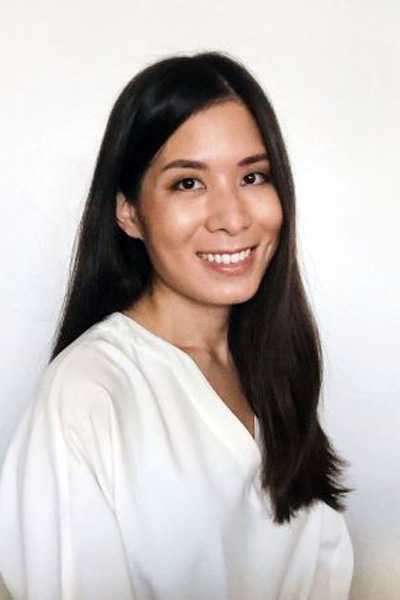
Mari Iwahara is a brand specialist, cross-cultural consultant, and designer at heart. After graduating with honors from the Rhode Island School of Design, she worked for renowned branding agencies on projects of all industries and scales, from corporate Fortune 500 companies to up-and-coming startups. She also spent years managing Brand Creative at Google Jigsaw, before joining Takram New York, where she currently leads Brand Strategy. With a love for decoding cultural nuances and crafting brands that resonate across borders, she is also the founder of Sibling, a cross-cultural brand consultancy that helps Japanese brands navigate the US market. As an active member and Emerging Leader of the U.S.-Japan Council, she also spends time building and supporting the Japanese-American community in her hometown, New York City.
Salon Ⅲ
<Politics & Society>
Salon Ⅲ
#5 Breakout Sessions <Politics & Society>
Divided US Society

Marcus Brauchli is co-founder and managing partner of North Base Media, a partnership that invests in media and technology companies. Its portfolio includes two notable Japanese companies: TNL Mediagene, a digital-media company that reaches two out of three young adults in Japan, and Zaiko, a streaming entertainment platform popular with musical artists and audiences. Brauchli has had a long career in media. He was executive editor of The Washington Post, which won seven Pulitzers during his tenure, and before that the top editor at The Wall Street Journal. Brauchli spent 15 years as a correspondent in Hong Kong, Shanghai, Tokyo and Stockholm. Mr. Brauchli is a graduate of Columbia University and Nieman Fellow at Harvard University. He is chairman of the Arthur F. Burns Fellowship, chairman of the Osborn Elliott Prize, a trustee of the Hirshhorn Museum and Sculpture Garden, and an advisor to the Prix Pictet in photography.

Rachel Kleinfeld is a senior fellow in Carnegie’s Democracy, Conflict, and Governance Program. Her work on troubled democracies facing problems such as polarized populations, violence, corruption, and poor governance bridges the United States and international cases. Kleinfeld’s focus on the intersection of democracy and security has led her to regularly brief the governments of the United States and allied democracies on issues of conflict, the rule of law, and policing and security sector reform, and she has also consulted for the European Union, OECD, and World Bank.
Prior to joining Carnegie, Kleinfeld spent a decade co-founding and directing the Truman National Security Project, for which Time magazine named her one of the top 40 political leaders under 40 in America.
Kleinfeld is the author of A Savage Order (Pantheon, 2018); Advancing the Rule of Law Abroad: Next Generation Reform (Carnegie, 2012), chosen by Foreign Affairs magazine as one of the best foreign policy books of 2012. Kleinfeld’s TED talk on improving violent democracies has been translated into 17 languages and viewed over a million times.
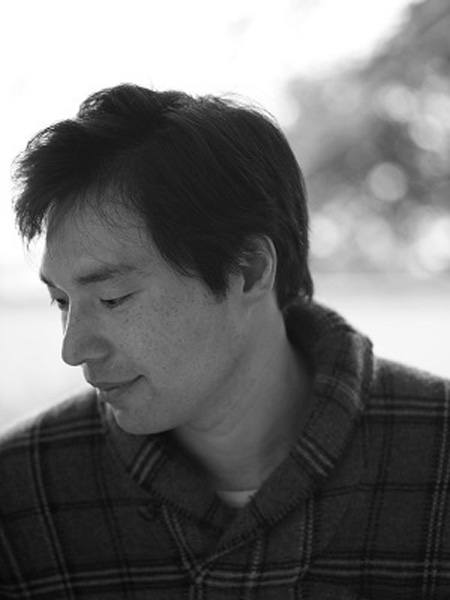
Ken Suzuki is co-founder and Chair of the Executive Board of SmartNews. Ken received a Ph.D from the Graduate School of Arts and Sciences at The University of Tokyo in 2009, and is currently a project researcher at the University of Tokyo. He has authored several published works such as “Namerakana Shakai to Sono Teki (The Smooth Society and Its Enemies)". Ken co-founded SmartNews, Inc. in 2012 with the mission of “delivering the world’s quality information to the people who need it.” In September 2014, he established SmartNews International Inc. and has been leading business growth in the U.S. market.
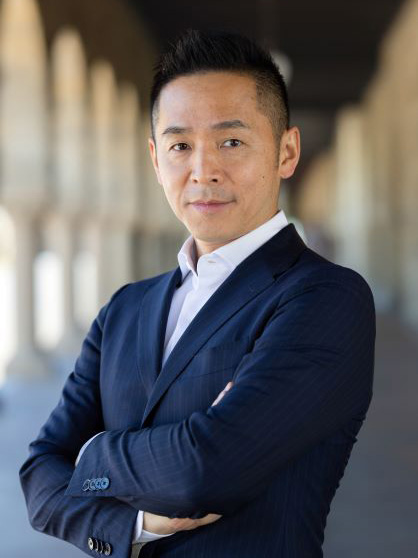
Kiyoteru Tsutsui is Henri H. and Tomoye Takahashi Professor of Japanese Studies, Deputy Director of the Shorenstein Asia Pacific Research Center (APARC), Director of the Japan Program at APARC, Senior Fellow of the Freeman Spogli Institute for International Studies, Co-Director of the Center for Human Rights and International Justice, and Professor of Sociology, all at Stanford University. His research on the globalization of human rights and its impact on local politics has appeared in American Sociological Review, American Journal of Sociology, Social Forces, Social Problems, Journal of Peace Research, Journal of Conflict Resolution, and other social science journals. His book publications include Rights Make Might: Global Human Rights and Minority Social Movements in Japan (Oxford University Press 2018), which received three awards from the American Sociological Association, and Human Rights and the State: the Power of the Ideal and the Reality of International Politics (人権と国家:理念の力と国際政治の現実)(Iwanami Shoten 2022), which received the 43rd Ishibashi Tanzan Book Award and the 44th Suntory Prize for Social Sciences and Humanities.
Salon Ⅱ
<Tech & Business>
Salon Ⅱ
#5 Breakout Sessions <Tech & Business>
Tech & AI: Leadership in Periods of Accelerating Transformation

Mitchell Baker co-founded the Mozilla Project to support the open and innovative web. As Executive Chair of Mozilla Corporation, Mitchell represents Mozilla in the public with a focus on policy, open source, and community, engaging in areas that touch on Mozilla’s unique history and ethos. She also works with the executive leadership team to strengthen how Mozilla’s entities work together to advance policy and community goals with greater urgency.
Mitchell advocates for the open internet, open source, and the importance of connecting technology to its impact on individuals and society. Highly regarded as one of the pioneers of the web and for bringing the open internet to consumers, she was instrumental in Netscape’s decision to release its source code to the public. This led to the release of the Firefox browser and the creation of the Mozilla Foundation which spans software product development, educational initiatives, and participatory movements.

Matías Duarte works cross functionally across Google’s Product Areas to lead innovation and design excellence, with a focus on AI experiences in consumer products and Pixel hardware. Up to 2021 Matías led Material Design, and prior to 2015 led design for Android. Matías designed WebOS at Palm, the T-Mobile Sidekick at Danger, and spent six years in the videogames industry. Matías received his bachelor's in Computer Science from the University of Maryland, College Park. A first generation Chilean immigrant, Matías has a personal ambition to foster opportunity, through the creative combination of technology, design, and storytelling.

Yohei Nakajima is a renowned venture capitalist and innovator. He is a General Partner at the early stage venture capital firm Untapped Capital, and the creative mind behind BabyAGI, the first open-source autonomous agent with task planning capability. Nakajima has been supporting early-stage startups for 15 years working closely with early-stage startups, and with global corporations such as The Walt Disney Company and Nintendo through his career at Techstars and Scrum Ventures. He is known for his “build-in-public” methodology, where he publicly builds with the latest technologies to both learn and meet founders. His projects span No Code, web3, artificial intelligence, and beyond.
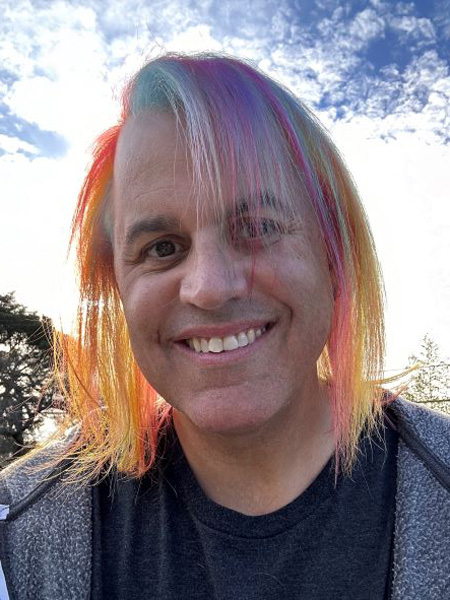
Cory Ondrejka is the CTO for SmartNews, where he is responsible for delivering quality news to millions of people in Japan and the United States. He was previously VP of Product Management and Technical Advisor to the CEO at Google, where he led the Core Experience team, responsible for improving the product experience across all of Google’s products. His teams delivered an entirely new user experience for Google products in Material You, multiple cutting edge Generative AI experiences, and transformed foundational technology depended on by billions of people. Prior to Google, Cory led the mobile transition at Meta as VP Mobile, was the co-creator and founding-CTO of Second Life, and shipped multiple video games. Cory Ondrejka is a Senior Fellow at the Burnes Center for Social Change at Northeastern University and a graduate of the United States Naval Academy and former Naval Officer.
#6 Plenary Session
Salon ⅢAnn E. Harrison
Haruki Satomi
Daniel Springer
Moderator: Jesper Koll
Salon Ⅲ
#6 Plenary Session
The Next Big Thing - Where Will the Next Decacorns Come From?

Ann E. Harrison is the 15th dean of the Haas School of Business, and the second woman to lead the top-ranked business school. A renowned economist, Harrison is one of the most highly cited scholars on foreign investment and multinational firms. She has dedicated her career to creating inclusive and sustainable policies in development economics, international trade, global labor markets, and now higher education. In 2023, she was named Dean of the Year by Poets & Quants.
Harrison came to Haas from the University of Pennsylvania’s Wharton School, where she was the William H. Wurster Professor of Multinational Management and a professor of business economics and public policy. Before joining Wharton in 2012, she was the director of development policy at the World Bank, where she co-managed a team of 300 researchers and staff.
Harrison earned her PhD in economics from Princeton University. Harrison is the co-author (with Keith E. Maskus) of the book Globalization, Firms, and Workers (2022).

Haruki Satomi joined KOKUSAI Securities Co., Ltd. (currently Mitsubishi UFJ Morgan Stanley Securities Co., Ltd.), was in charge of IPO consulting. Then he worked for Phoenix Capital Co., Ltd., a private equity firm in Tokyo. From there, he joined Sammy Corporation, which was founded by his father in 1975, then joined SEGA Co. In 2005, he became a Vice President of Digital Business for SEGA of America Inc. where he built up its Digital Distribution Business in San Francisco. After the graduation of UC Berkeley Haas School of Business (MBA) and returning to Tokyo in 2012, he was appointed as CEO of Sammy Networks Co., Ltd., SEGA Networks Co., Ltd.(now SEGA Co.), and SEGA Games Co., Ltd. (now SEGA Co.). He also served as a non-executive board member of Sanrio Co., Ltd. for two years. Currently, Satomi is President & Group CEO of SEGA SAMMY Holdings Inc., Chairman & CEO of SEGA Co., and President & CEO of Sammy Corporation.
UC Berkeley’s Haas School of Business MBA (2012)
Member of Human Rights Watch Tokyo Committee (2017-)
Japan Association of Corporate Executives Trustee (2021-)
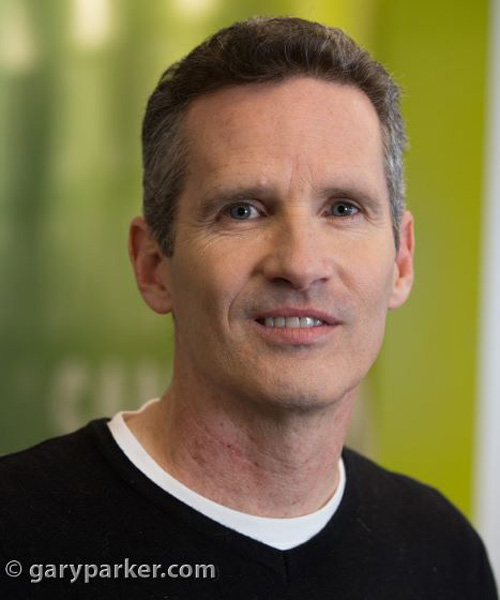
Daniel Springer serves as Board Director of UiPath and DocuSign, where he was CEO until June 2022. Springer has more than 25 years of executive leadership and experience in driving innovation and hyper growth across technology and, specifically, Software-as-a-Service (SaaS) businesses.
Prior to DocuSign, Springer served as Chairman and CEO at Responsys for ten years where he transformed and scaled the business from private start up to the leading cross-channel marketing automation platform globally as a publicly traded company.
Springer holds an MBA from Harvard University and an AB in Mathematics and Economics from Occidental College.
Springer has served as a board member at both public and private companies, including iCIMS, Ansira, YuMe, ELOAN (Banco Popular), Heighten, Persado, and eGroups (Yahoo!), as well as at nonprofits, including The Boys and Girls Club, YearUp, The Urban School, Shop.org, AdTech, The Randall Museum and The San Francisco Friends School.

Jesper Koll has been researching and investing in Japan since becoming a resident in 1986. Over the past two decades, Jesper has been consistently recognized as one of the top Japan strategists/economists, having worked as Chief Strategist and Head of Research for U.S. investment banks J.P. Morgan and Merrill Lynch. He currently serves as Expert Director for the Monex Group and the Japan Catalyst Fund (Japan’s 1st retail investor based corporate engagement/activist fund). His analysis and insights have earned him a position on several Japanese government and corporate advisory committees, including Tokyo Governor Yuriko Koike’s Advisory Board. In 2022, he was appointed Global Ambassador for Tokyo’s Financial Center initiative. Jesper serves as Board Director of OIST, the Okinawa Institute for Science and Technology and is a Founder and Board Director of the Asia Society Japan and heads their Policy Committee. He is one of the few non-Japanese members of the Keizai Doyukai, the Japan Association of Corporate Executives; and serves on the board of several Japan-based start-ups. He has written three books in Japanese and, in 2021, created the acclaimed video/pod-cast series “Japan - Capitalism that works”.
Jesper is an economist, angel-investor, patron; and yes, a Japan Optimist.
Closing Session
Salon ⅢSalon Ⅲ
Closing Session
Cocktail Time
Ballroom TerraceBallroom Terrace
Cocktail Time
Farewell Dinner
MiramarMiramar
Farewell Dinner
Programs are subject to change without notice.
| 日時 | Wednesday, 17, 2024 through Thursday, 18, 2024 |
|---|
The Inaugural G1 Silicon Valley Theme:
“The US-Japan Contribution to the World: What should we do next?”
Inflation in the US and Japan, a rising China, the collapse of Silicon Valley Bank, the emergence of ChatGPT—these are but some of the issues and opportunities we face today, as G1 holds its first event outside Japan in Silicon Valley.
Over two days, at the Inaugural G1 Silicon Valley, we will discuss these and other pressing issues through panel sessions, lunch workshop, and over meals and drinks. In doing so, we will forge new relationships among G1 members and our kindred spirits in the US, for stronger US-Japan ties and our contribution to better world.
By bringing together the proactive, action-oriented principles of G1 and the entrepreneurial spirit and tenacity of Silicon Valley, together we in Japan and the US can combine our strengths and increase our contribution to the world.
Powerful forces are pushing the global economy towards increasing uncertainty. Contradictory forces are now at work, with the fight against inflation now beginning to feed fears of financial instability and a possible credit crunch. In addition, globalization and deregulation has been replaced by national, industrial, and economic security as top priorities for policy makers. This panel aims to address the key trends, challenges and opportunities that will shape the future of the US, Japanese, and global economies.
Although Silicon Valley's tech sector grew during the COVID-19 pandemic, recent tech layoffs and the collapse of Silicon Valley Bank are threatening the area's economy. How has this affected the investment climate specifically? VCs and investors need to be aware of the effects on finance, the development of LLMs, the reveal of "fake" unicorns, and the geopolitical situation. Panelists will discuss these issues, how to get ready for the "next big thing," how to globalize in the face of these challenges, and potential innovations to VC's business models. We will wrap up by discussing what VCs in the US and Japan can contribute to the world going forward.
Please go to your assigned table and enjoy a boxed lunch for a discussion about the conference theme. There are no formal presentations, so please talk freely. We’ve asked facilitators to help lead the conversation.
Design, no longer just about aesthetics, is a powerful tool that can help companies solve complex problems, innovate, and create better products and services. Historically, both Japan and Silicon Valley have built much of their economic success on the development of new technologies, but today, good technology alone is not enough. So in competitive markets, many companies leverage the power of design to differentiate their offerings with simple, unique user experiences. This panel discussion will share practical knowledge about how to apply design for business success, and especially how design can accelerate startup companies on both sides of the Pacific. The panelists are leaders in design, investment, and entrepreneurship, who will share their insights on the importance of design in business and how it can be used to create value for societ
We are currently in a global era of fragmentation and competing world views, with widening gaps between political stances and economic realities. The fundamental nature of US-China competition is very different when seen from Washington, Beijing, and Tokyo. Even within the US, the relationship with China looks quite different between Washington DC, California generally, and Silicon Valley, with contrasting emphases on geopolitics, Asian American diasporas, and economic/innovation ties. The economic and political realities that Japan sees for itself is also a stark contrast to Washington's hopes for Japan as a staunch ally in US-China competition, since Japan is navigating deep economic ties with China while maintaining strong security ties with the US. Developments within China and the nature of Xi Jinping's leadership are critical in global geopolitics. This panel will discuss developments within each county, the implications for international relations, and potential impact on business.
ChatGPT launched in November 2022, a tectonic shift in the development of AI. Now, many businesses are applying generative AIs to their business, but it is still in an early phase. Where is the technology going? GPT-4, plug-in applications, and competing LLMs - all of this is moving very fast. What should we anticipate next? Are we finally close to getting AGI (artificial general intelligence)? Is this the next big platform everyone anticipated? Panelists will discuss the business implications, including the winners, how should startups compete and where to find the next gold mine.They will also discuss the political implications, how to regulate AI, and how to navigate in this tense geopolitical environment.
(プログラムは予告なく変更される場合がございます)
| 日時 | Thursday, April 20, 2023 through Friday, April 21, 2023 |
|---|---|
| 会場 | |
| 言語 | |
| 参加費 | |
| 人数 | |
| 主催 | |
| 後援 |


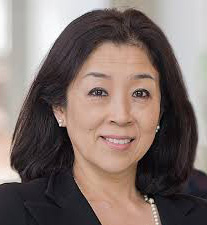
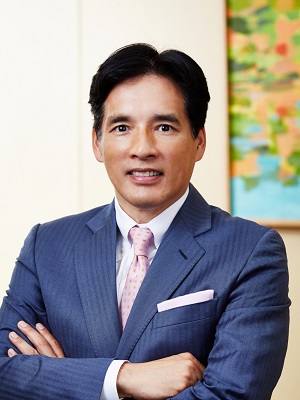



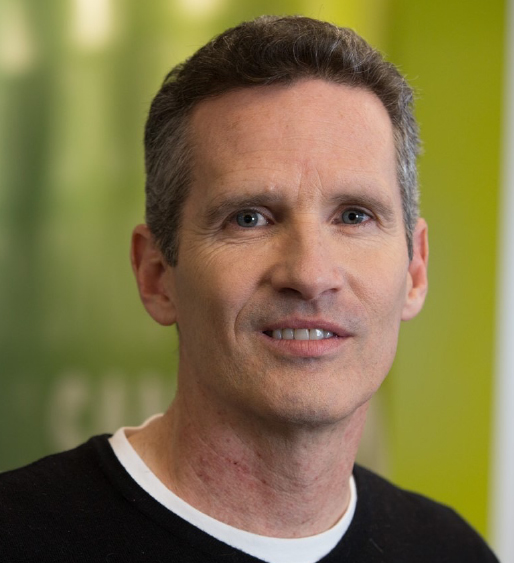




東京都千代田区二番町5-1 住友不動産麹町ビル 株式会社グロービス内
TEL:03-5275-3681 FAX:03-5275-3890
E-Mail:conference@globis.co.jp

